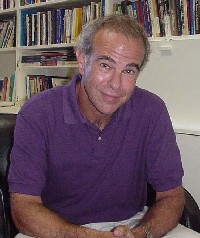TC Team to Study Collective Impact Approach to Education Reform
As educational and community problems become ever more complex, local organizations and institutions in a growing number of U.S. cities are collaborating across government, business, education, and nonprofit sectors to seek solutions that exceed the ability of most single entities to resolve alone.
To measure the effectiveness of this “collective impact” approach, The Wallace Foundation has awarded a grant to researchers at Teachers College to study whether and how community institutions in three mid-sized cities can work together to tackle social and educational challenges in their local communities.
The $799,000 grant will support a comparative study of efforts in Buffalo and two other cities to pursue education reform and community revitalization through collaborations by institutions in the government, business, education, and nonprofit sectors. The research team, selected after a competitive process, is led by Jeffrey Henig, professor of Political Science and Education; and Carolyn Riehl, associate professor of Sociology and Education Policy. Both are in TC’s Department of Education Policy and Social Analysis.
Other key members are Michael Rebell, executive director of the Campaign for Educational Equity and professor of law and educational practice at Teachers College; and Jessica Wolff, policy director at the Campaign for Educational Equity, which focuses on expanding educational opportunities for students from disadvantaged backgrounds. The team will select the other two cities for the study by year’s end, drawing from a growing number of U.S. cities exploring this ambitious but complex approach to reform.
The Teachers College research team will produce two public reports about their findings – one in fall 2015 and one in early 2017.
"We are excited about the opportunity to look closely at this promising approach," said Henig of the project he will lead. "It could be a prescription for a new way to build and sustain effective reform by combining locally-centered, multi-sector initiatives with deliberate attention to coalition-building. But there have been promising approaches in the past that ended with disappointing or inconsistent results. We hope to gain insights about whether, under what conditions, and how best collective impact approaches can work as we hope they might."
The term “collective impact,” coined in 2011 by the nonprofit consulting group FSG, describes broad, multi-sector collaborations that can involve mayors’ offices, leading employers, schools, universities, funders, healthcare providers, social service agencies, nonprofits and community members. Collective impact has attracted attention nationwide as communities try to solve complex problems such as teen substance abuse, high dropout rates, childhood obesity, limited youth employment opportunities, and environmental clean-up, which can benefit from collective effort, expertise, and resource commitment. Hundreds of organizations and individuals around the world are paying close attention to these efforts. Yet even as communities rush to explore collective impact strategies, many questions remain.
Hilary Rhodes, senior research and evaluation officer at Wallace, said, “We want to better understand how collective impact operates, including how people start collaborating to move toward a common goal without self-interest getting in the way, and how an entire community generates the trusting relationships that enable people to work together for real change.”
The research will include a comprehensive literature review on collective impact, a scan of initiatives nationwide to involve communities in collaborative efforts for educational reform, and a comparative analysis of the three cities’ efforts. Among the topics the research team will explore:
- How collective impact initiatives actually operate, the challenges they encounter and the role incentives play, such as the promise of free college tuition for all students
- Whether and how financial resources are reallocated across organizations
- Ensuring buy-in from the community’s leaders and from grassroots individuals
- Negotiating the complications of race and politics, as well as the consequences of past relationships, and addressing the self-interest of participating individuals and groups
- Linking collective impact activities with changes in services for children.
Published Tuesday, Mar. 25, 2014
